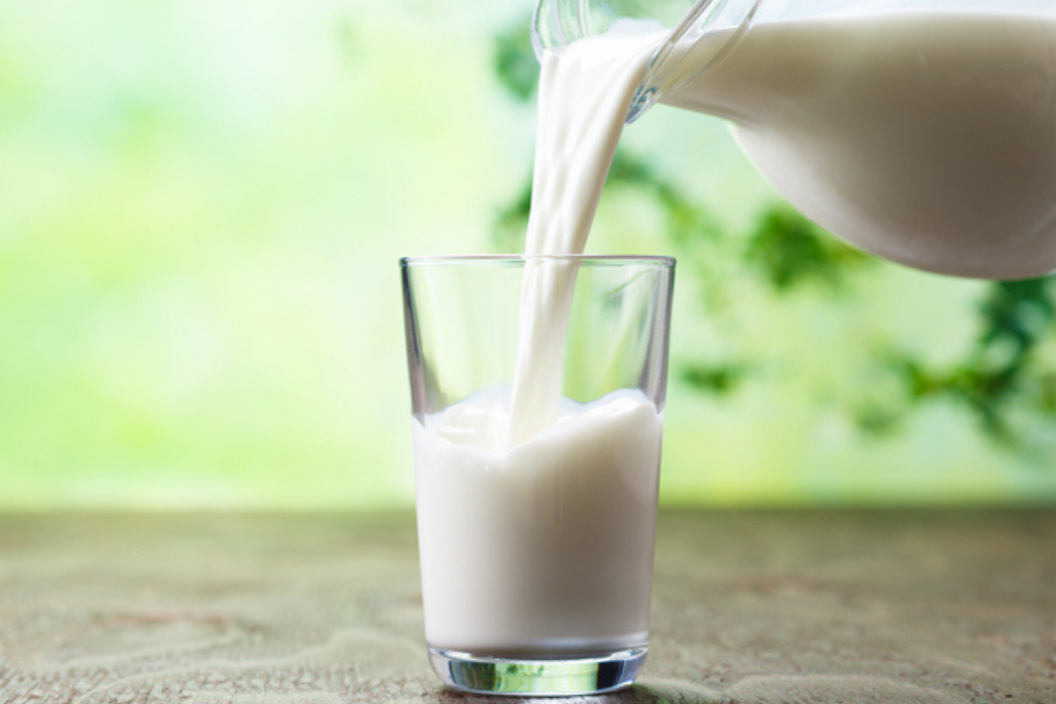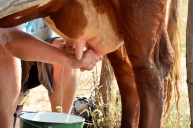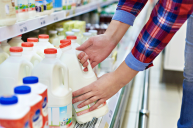There's nothing like a cold glass of milk with chocolate chip cookies. Unless you get your milk directly from a dairy farm, you're most likely drinking milk that's gone through a pasteurization process. We all know that milk does a body good; you might think that the closer the milk is to the cow, so to speak, the healthier it is. If that's the case, why is raw milk illegal in so many states?
Videos by Wide Open Country
Why is Raw Milk Illegal to Purchase?
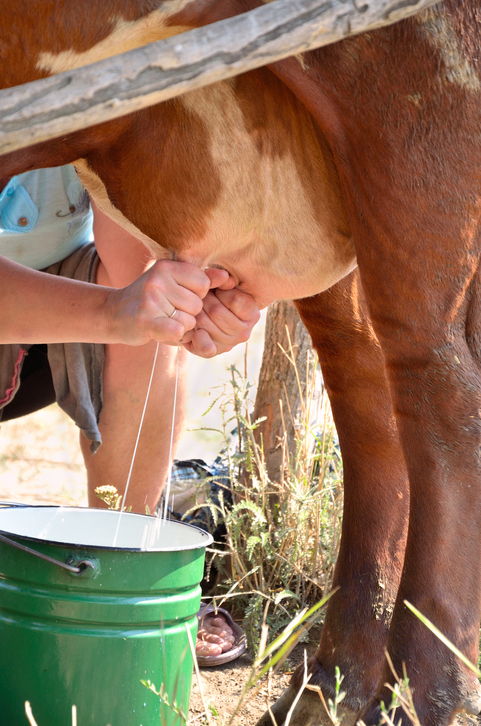
Getty Images
First, let's clarify exactly what's illegal about raw milk. The U.S. Food and Drug Administration bans anyone from selling or distributing unpasteurized milk for human consumption via interstate commerce, that is across state lines. But there is no ban on actually consuming raw milk and raw milk products. So, if you're a dairy farmer, you can drink the milk however you like it and you can give it away, too.
In the past several years, some states, such as California and Pennsylvania, have made laws allowing for the sale of raw milk to consumers in grocery stores, while other states, including New York and Missouri, allow customers to buy directly from the farmer at dairy farms or farmers markets. Some states, like Colorado, allow cow-shares or herd-shares, which is where you can buy a share in a cow (kind of like a community-supported agriculture share) and the farmer keeps and takes care of milking the cow, then gives you some of the milk, which means you're not actually buying raw milk directly so it's not technically illegal.
States You Can Purchase Raw Milk
Data provided by Procon.org.
13 states allow the sale of raw milk in retail stores
- Arizona
- California
- Connecticut
- Idaho
- Maine
- Nevada
- New Hampshire
- New Mexico
- Pennsylvania
- South Carolina
- Washington
17 states allow sales of raw milk only on the farm on which it was produced
- Arkansas
- Illinois
- Kansas
- Massachusettes
- Minnesota
- Nebraska
- New York
- Oklahoma
- Texas
- Wisconsin
- Missouri
- South Dakota
- Vermont
- Wyoming
- Kentucky (raw goat milk)
- Mississippi (raw goat milk)
- Rhode Island (raw goat milk)
8 states allow raw milk to be obtained by "cow-share" agreements
- Alaska
- Colorado
- Michigan
- North Dakota
- Ohio
- Tennessee
- Virginia
- West Virginia
20 states prohibit the sale of raw milk for human consumption
- Alabama
- Alaska
- Colorado
- Delaware
- Florida
- Georgia
- Hawaii
- Indiana
- Iowa
- Louisiana
- Maryland
- Michigan
- Montana
- New Jersey
- North Carolina
- North Dakota
- Ohio
- Tennessee
- Virginia
- West Virgina
Foodborne Illness and Raw Milk
So why exactly is raw milk illegal? It all comes down to food safety and public health. The Centers for Disease Control and Prevention (CDC) states that raw milk can carry dangerous bacteria such as Salmonella, E. coli, Listeria, Campylobacter. From 1993 through 2012, the CDC says that there were 127 outbreaks linked to raw milk or raw milk products like ice cream, soft cheese, or yogurt which resulted in 1,909 illnesses and 144 hospitalizations.
The CDC particularly notes that foodborne illness from raw milk especially affects children and teenagers, because their immune systems aren't developed enough yet, though pregnant women and anyone with a compromised immune system may also be at greater risk.
What is Pasteurizing?
Pasteurizing, the process of heating raw milk to 161 degrees Fahrenheit for 15 seconds, kills those harmful bacteria. The Food and Drug Administration (FDA) notes that pasteurization does not reduce the health benefits of milk, nor does it cause allergic reactions or lactose intolerance.
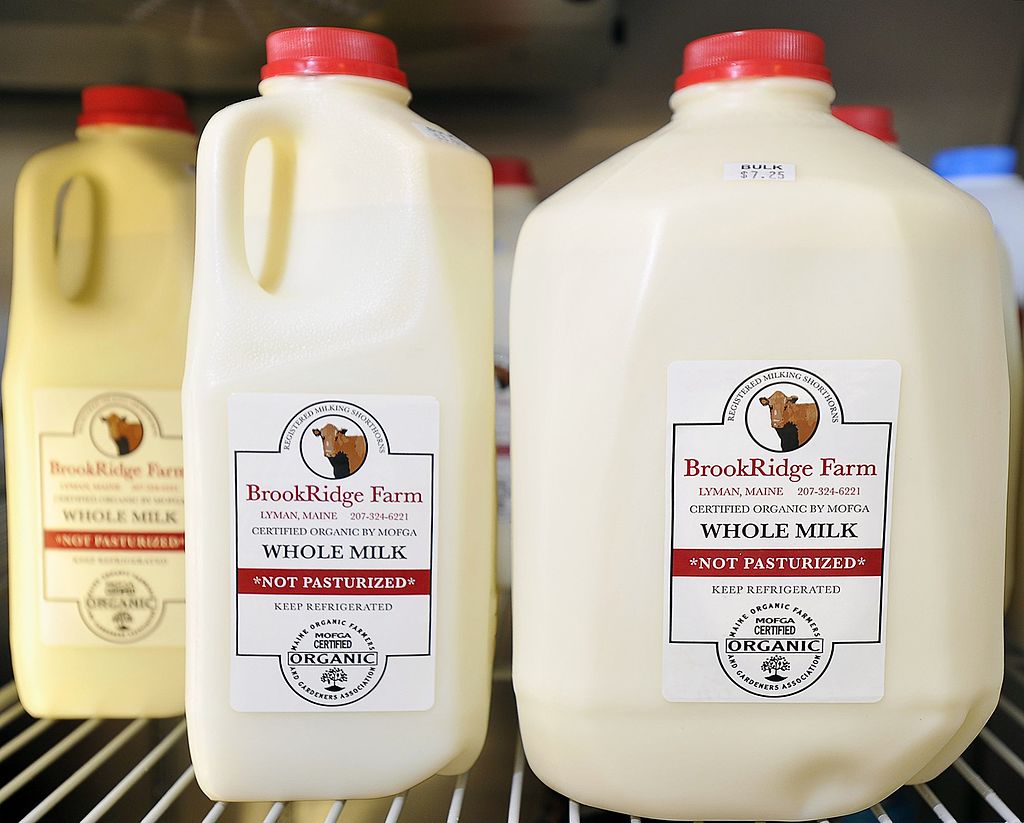
(Photo by Gordon Chibroski/Portland Press Herald via Getty Images)
Raw milk cheese (cheese made with unpasteurized milk) is also banned from being sold across the United States unless it has been aged for at least 60 days. The aging process allows the acids and salts in the cheese to naturally curtail the growth of harmful bacteria.
The states that allow raw milk sales generally do so with some kind of state laws that require permits and inspections for milk producers, plus limits on how much can be sold, what kinds of dairy products are allowed for sale, how they are labeled, and where they can be sold. Some states also allow raw milk producers to sell their dairy products for animal feed as well.
If you're interested in trying raw milk, check your state laws, and talk with your local dairy farmer to understand options.
READ MORE: Dipping Cornbread in Milk is a Southern Thing
